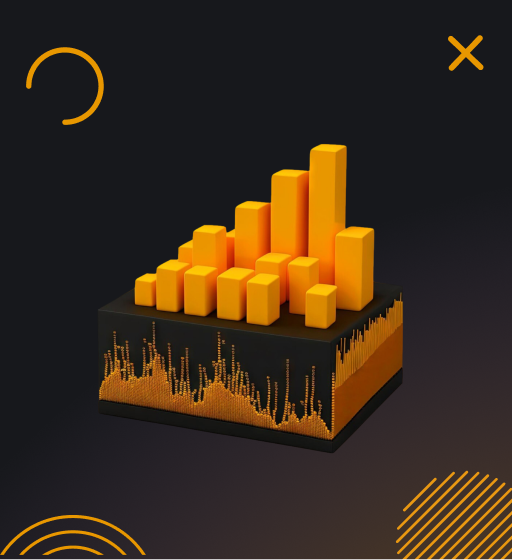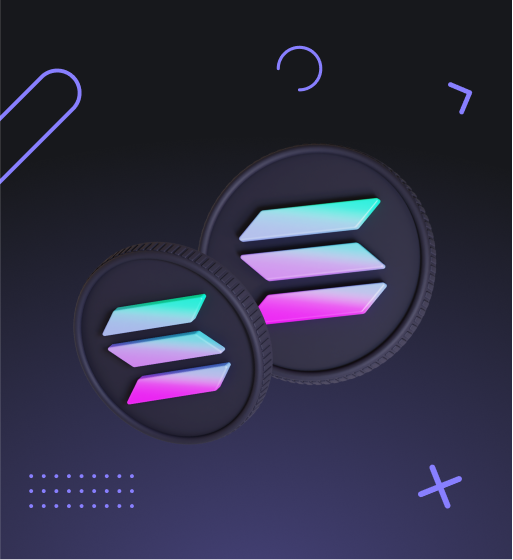Decentralized Finance (DeFi) is transforming how people access financial services. With DeFi, you can lend, borrow, earn interest, trade assets, and more - all on public blockchains like Solana. This enables an open financial system without middlemen.
In this comprehensive guide, we'll explain everything you need to know about maximizing DeFi as a power user.
What is Decentralized Finance (DeFi)?
DeFi stands for "decentralized finance." It refers to financial applications built on top of blockchain networks like Solana, Ethereum, Polygon, Sui, Aptos among others.
With DeFi, you can do most things that banks support - earn interest, borrow, lend, buy insurance, trade derivatives, trade assets, and more - but faster, globally, and without paperwork or a third party.
DeFi aims to create an open financial system that is:
- Accessible to anyone - All you need is an internet connection and a crypto wallet. There are no credit checks or personal details required.
- Transparent - All transactions are visible on the public blockchain for full transparency.
- Interoperable - Money and assets can easily flow between different DeFi applications and platforms.
- Programmable - Smart contracts automate processes and remove middlemen.
The end goal is financial services that are more efficient, open, and fair compared to traditional finance. DeFi puts users in control over their money.
How Does DeFi Work?
DeFi applications run on top of blockchain networks like Solana. They are called "decentralized" because they rely on the underlying blockchain's global peer-to-peer network, rather than centralized servers.
Users interact with DeFi apps through crypto wallets like Ned Wallet. Your wallet contains your keys and crypto assets. There's no application process - connect your wallet to start using a DeFi app instantly.
Many DeFi apps use smart contracts - programs stored on the blockchain that run automatically when certain conditions are met. For example, earning interest in a DeFi lending platform is handled by smart contracts.
Developers build DeFi apps by combining:
- Smart contracts for logic and automation
- Oracles for real-world data like asset prices
- Digital assets like cryptocurrencies
- Decentralized exchange protocols
- Blockchain networks like Solana
This composability enables endless possibilities for new DeFi innovations!
Why is DeFi Important?
DeFi is important because it expands on Bitcoin's invention of peer-to-peer digital money into an entire open financial system.
Anyone can participate in lending, trading, investing, and more through DeFi platforms - no gatekeepers required. Geographic borders and financial regulations don't constrain it.
DeFi brings the potential for more open, free, and fair financial markets by eliminating:
- Expensive fees
- Exclusion of users
- Central points of failure
- Interruptions in access to your money
- Delays in transfers and transactions
All while retaining privacy, security, and individual control over funds.
DeFi vs Traditional Finance
| Feature | DeFi | Traditional Finance |
|---|---|---|
| Access | Anyone with an internet connection | Restricted by geography, credit scores, minimum wealth, etc |
| Speed | Seconds for settlement and transfers | Days or weeks for transfers, trades settlement |
| Fees | Low fees | High fees, account minimums, and spread costs |
| Hours | 24/7/365 | Weekdays, business hours |
| Interest Rates | Set by open market competition | Set by central banks and institutions |
| Privacy | Pseudonymous | Extensive personal details required |
| Censorship Resistance | Transactions can't be blocked or reversed | Transactions can be blocked or reversed |
Key Benefits of DeFi
Decentralized finance offers significant advantages over traditional financial systems. Here are some of the key benefits for users:
1. Accessible to anyone globally
To use DeFi, all you need is an internet connection and a crypto wallet - no paperwork, credit checks, or proof of identity required. It's built on open protocols that anyone can access.
This enables underbanked and unbanked populations to access financial services for the first time.
2. No geographic restrictions
DeFi is blockchain-based, so your physical location doesn't matter. Applications and markets are available globally by default.
You can earn high-yield savings from anywhere or lend to borrowers across the world.
3. Transfers are fast and inexpensive
Sending money or assets takes seconds or minutes on DeFi. Transactions settle extremely quickly without batching.
Transfer fees are a fraction of traditional banking - usually less than a dollar. Some DeFi apps offer free transfers.
4. Trading is flexible and open
DeFi decentralized exchanges (DEXs) enable you to trade directly peer-to-peer, any time. No access restrictions, trading windows, or asking permission.
Trades settle atomically in seconds through smart contracts. And as DEXs grow, liquidity and trading options expand.
5. Full control and transparency
DeFi puts you in charge. You control your private keys, so you have unfettered access to your funds 24/7.
Everything that happens in DeFi is transparent on the blockchain. You can analyze every transaction and holding yourself.
6. Censorship resistance
No single entity can block or reverse your DeFi transactions. Even smart contract bugs or platform failures can't prevent access to your money.
This is a significant improvement over relying on banks and governments, who can freeze funds or deny transactions.
7. Programmable, composable services
DeFi apps are programmable money Legos - they can be mixed, matched, and built upon each other in novel ways.
This composability allows for next-generation apps. For example, flash loans that weren't previously feasible.
8. High interest rates
Lenders can earn significantly higher interest in DeFi than traditional bank savings accounts. For crypto held as collateral, interest compounds every minute.
Rates are set by algorithms based on supply and demand - no central bank rate manipulation.
9. New crypto derivative markets
DeFi allows crypto enthusiasts to trade traditional financial derivatives like options and futures without intermediaries.
These open markets enable better price discovery and ability to hedge portfolios.
DeFi Use Cases and Examples
Now that you understand the basics, let's explore some of the leading use cases and examples of DeFi in action:
Lending and Borrowing
Lending and borrowing platforms like Solend, Compound, and MakerDAO enable users to supply crypto as collateral to earn interest, or borrow assets. Interest rates are set dynamically based on supply and demand.
As a lender, you can earn 5-15%+ APY ROI on stablecoins, ETH, BTC, and other crypto - significantly higher than legacy banks. Loans get originated in minutes with no credit checks.
For borrowers, it's quick access to liquidity with crypto as the sole collateral. Flash loans allow borrowing for extremely short periods of time.
Decentralized Exchanges (DEXs)
DEXs like Uniswap allow anyone to trade crypto assets directly peer-to-peer through liquidity pools, instead of order books. Trades settle nearly instantly on-chain.
Some benefits over centralized exchanges:
- Access for anyone globally
- Control private keys yourself
- List new assets quicker
- Never lose holdings due to exchange hacks
- Transparent open-source operations
However, centralized exchanges still see higher trading volume for now due to superior liquidity.
Stablecoins and Pegged Assets
Stablecoins like USDC aim to maintain a pegged value, usually $1 USD. This provides crypto with stability for payments and DeFi apps. MakerDAO pioneered stablecoins with DAI in 2017.
DAI stays pegged through overcollateralized lending and autonomous smart contracts. Users lock up crypto as collateral to mint new DAI.
Other pegged assets represent real-world assets like gold (DGLD), other fiat currencies, etc. A blockchain's inherent transparency helps ensure the backing assets are fully reserved.
Token Sets
DeFi index funds or "Token Sets" like those on Symmetry enable one-click diversified crypto portfolio exposure. This simplifies investing in the volatile crypto market for newcomers.
Prediction Markets
Prediction markets like Gnosis allow users to trade event outcomes to tap into collective wisdom about the future. Think betting markets but decentralized.
For example, you could buy shares that represent whether an upcoming film will gross over $500 million. As more trades occur, the "wisdom of the crowd" reveals the most likely outcome.
Insurance
DeFi insurance protocols like Nexus Mutual offer coverage on smart contracts. You can buy a policy to protect your holdings against unlikely risks like hacking or bugs.
DeFi is a new world crowded with opportunities, focus on truly understanding this new financial landscape.







